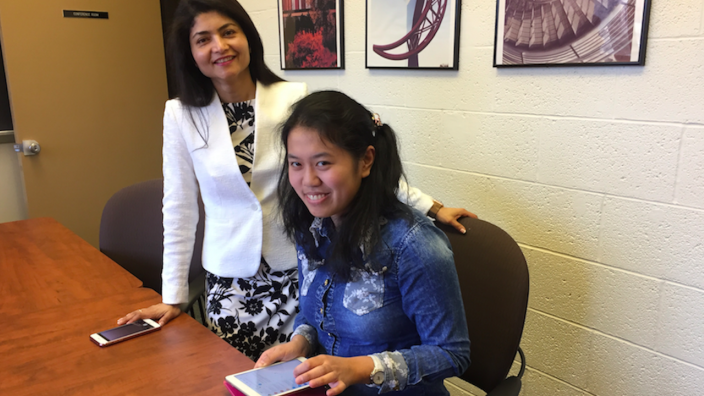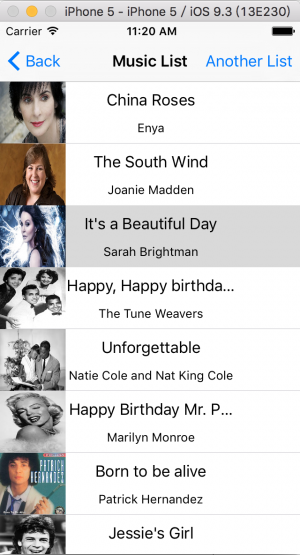Yichen Wei met Dr. Arshia Khan in a required computer science class. Yichen was a mathematics and statistic major, and she clearly wasn’t too keen on taking Dr. Khan’s class. Yet, as the course progressed, Dr. Khan noticed that despite Yichen's dislike of coding, she was extremely talented in it. By the end the semester, Dr. Khan had convinced Yichen to give computer science more of a chance. In return, Yichen started educating Dr. Khan on what makes women students shy away from computer classes.
“Women students may prefer more realistic, tangible problems,” Yichen says. “There is a gap between what you learn in class and the end results, so they have problems with coding. It's too abstract.” Dr. Khan took those observations to heart and made subtle, yet important changes in her teaching assignments.
When Yichen realized her love of problem solving could be applied to creating real solutions, she saw coding in a new light. She even added computer science as one of her majors. “When my aim became helping others, that motivated me to keep going.”
UNDERGRAD RESEARCH
Dr. Khan took notice of this new interest in computer science and convinced Yichen to work on an Undergraduate Research Opportunity Project (UROP). Yichen’s UROP work is to design an app that helps patients with dementia. It uses research, conducted by renowned neurologist Oliver Sacks, in which he played music for patients with Alzheimer’s which calmed them and helped them remember the past. “Those memories have not disappeared, they are just misconnected in the brain,” says Yichen.
“The earliest memories are the last ones to go,” says Dr. Khan. “There are specific events that become disconnected, but are not lost. They are deeply buried in the mind,” she explains. These memories will never go away, the patient just needs a trigger to recall the memories.
These triggers can be cues or prompts such as pictures, stories, or music, that can be used to resurface memories.PERSONALIZING AN APP
The app will use resources such as personalized music libraries, a selection of family photos, newspaper headlines, music from different eras, and other cues that will help patients recall memories.
Yichin is working on the Apple version and another researcher is working on an Android version. “We are trying to find a way to help a caregiver create a personal account for the patient,” explains Dr. Khan.
Downloading music is a hurdle. “We haven’t found the perfect solution yet,” says Yichen. They have tried Spotify and Apple music but the codes don’t work with the app.
There is plenty of interest in the app. “St. Luke’s has been waiting for the app for six months," said Dr. Khan. “There is a research company in Australia that wants it, we just haven’t been able to get it ready. We are hoping the Android version will be ready to deploy soon,” she says.
With a little inspiration, technology can be a valuable asset that can benefit the lives of many people. Yichen drew her inspiration from seeing how coding could improve a person's quality of life, a viewpoint that was nurtured by Dr. Khan.
Visit the Department of Computer Science website.

